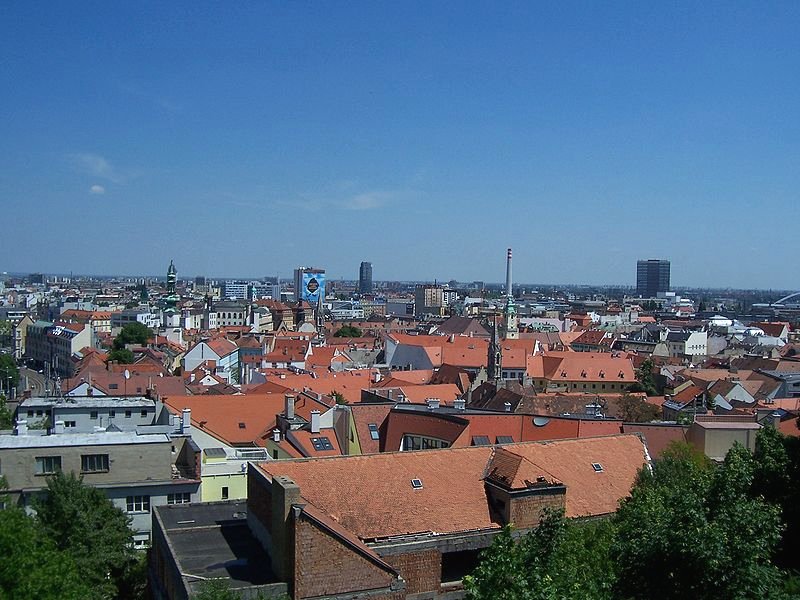 Bratislava, Slovakia
Bratislava, SlovakiaSource: https://commons.wikimedia.org/wiki/File:BratislavaView1d.JPG
Author: DDima

Bratislava is the capital and biggest city in Slovakia. Straddling the Danube River in southwestern Slovakia, Bratislava covers 368 sq km (142 sq mi) and has a population of 471,000 (2011 estimate). It is the only national capital in the world to border two countries, Austria to the west and Hungary to the south. The city is within a metropolitan area with 660,000 people. Also known by its German name Preßburg, it is the political, cultural and economic center of the country.
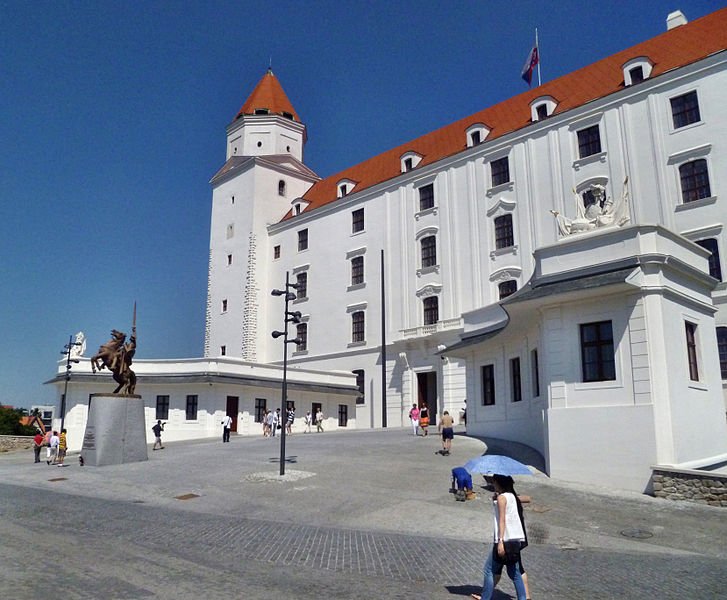 Bratislava Castle, Bratislava, Slovakia
Bratislava Castle, Bratislava, SlovakiaSource: https://commons.wikimedia.org/wiki/File:Bratislava_022.jpg
Author: JoJan

Bratislava is in the Central European Time Zone, which is an hour ahead of Coordinated Universal Time (UTC+1) and two hours during Daylight Saving Time in summer. The phone IDD area code is +421-2.
Part of the Carpathian mountain range is geographically within the Bratislava city limits. The highest point in the city is Devínska Kobyla, at 514 m (1,686 ft), while the lowest point is on the Danube River, at 126 m (413 ft).
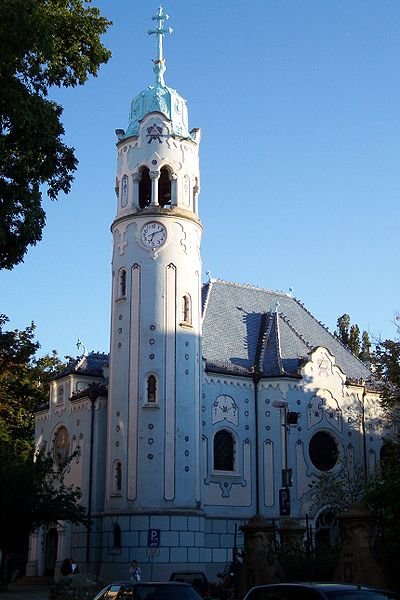 The Blue Church, Bratislava
The Blue Church, BratislavaSource: https://commons.wikimedia.org/wiki/File:Blaue_Kirche_Bratislava.JPG
Author: Toffel

Bratislava experiences a continental climate. Its warmest months are July and August, when the average temperature reaches 27°C (81°F). Coldest month is January, when the average low temperature drops to -3°C (27°F). June is the wettest month, with 61 mm (2.4 in) of precipitation.
Human habitation in the Bratislava area goes back thousands of years. Discovery of the Linear Pottery Culture pointed to permanent human settlement in the area during the Neolithic age, around 5,000 BC. Since then various tribes have occupied the area. The Romans control it from the 1st to the 4th century.
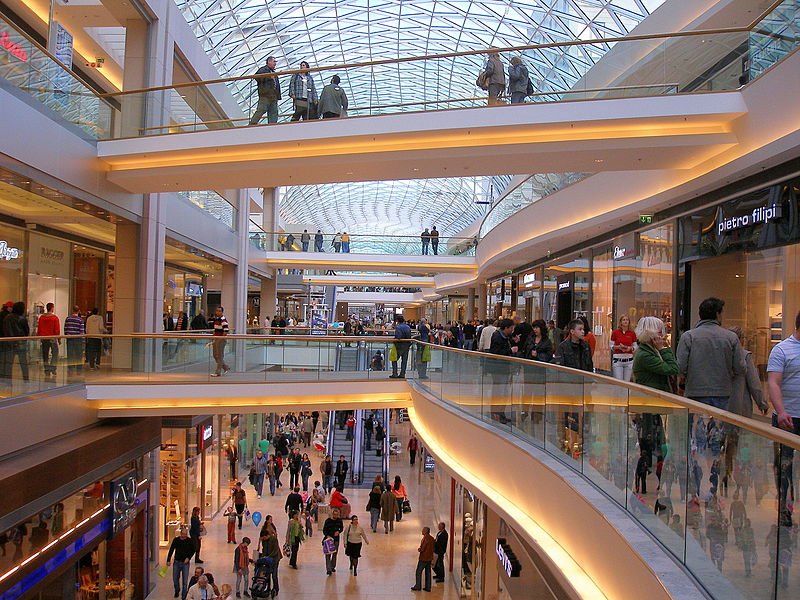 Eurovea Gallery in Bratislava
Eurovea Gallery in BratislavaSource: https://commons.wikimedia.org/wiki/File:Bratislava10Slovakia15.JPG
Author: Doko

In the 10th century, the area known as territory of Pressburg became part of the Kingdom of Hungary. In 1526, Hungary was besieged by Turks. This forced Hungary to relocate its capital to Bratislava in 1536. Its position waned under the reign of King Joseph II, with the crown jewels moved to Vienna in 1783 and government offices relocated to Buda.
When Czechoslovakia was formed on 1918, Bratislava was added into the new country, despite the reluctance of its representatives. Its Hungarian and German population tried to resist annexation into Czechoslovakia but was unsuccessful. During the Second World War, Bratislava was made the capital of the shortlived Slovak Republic, which was quickly conquered by the Nazis. The city was once again part of Czechoslovakia after the war.
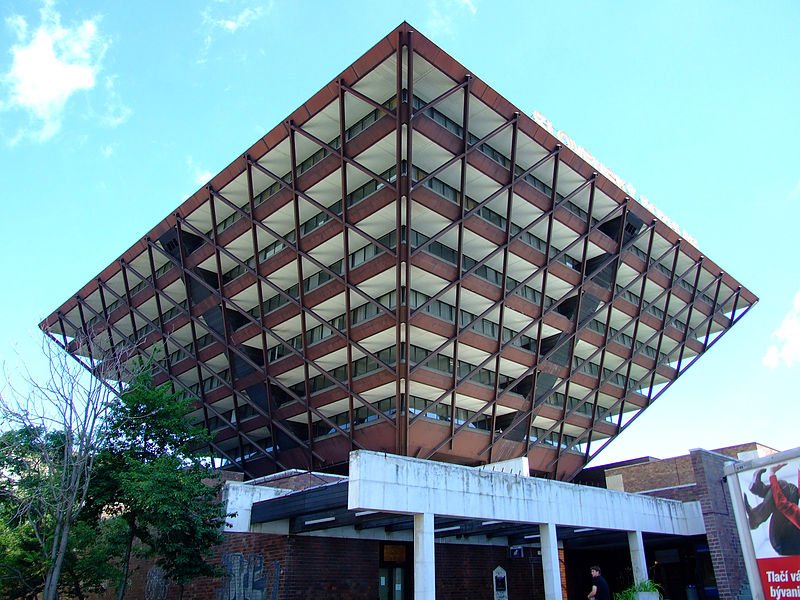 Slovak Radio building, Bratislava
Slovak Radio building, BratislavaSource: https://commons.wikimedia.org/wiki/File:Bratislava,_Star%C3%A9_Mesto,_N%C3%A1mestie_Slobody,_Slovensk%C3%BD_rozhlas.jpg
Author: Aktron

Following the failure of Czechoslovakia to liberalize in 1968, Bratislava was occupied by Soviet troops of the Warsaw Pact. It was made the capital of the Slovak Socialist Republic, one of the two components of Czechoslovakia. True liberation finally came with the fall of the Soviet Union in the 1989 Velvet Revolution. This led to the 1993 Velvet Divorce, with Bratislava becoming the capital of the newly formed independent Slovak Republic.
Visiting Bratislava
The main international gateway to Bratislava is the Bratislava Milan Rastislav Štefánik Airport (BTS). Arriving here, you can take the bus (61) to the Bratislava Railway Station in downtown. Taxis are expensive, and the 15-minute ride to downtown Bratislava will cost you €30.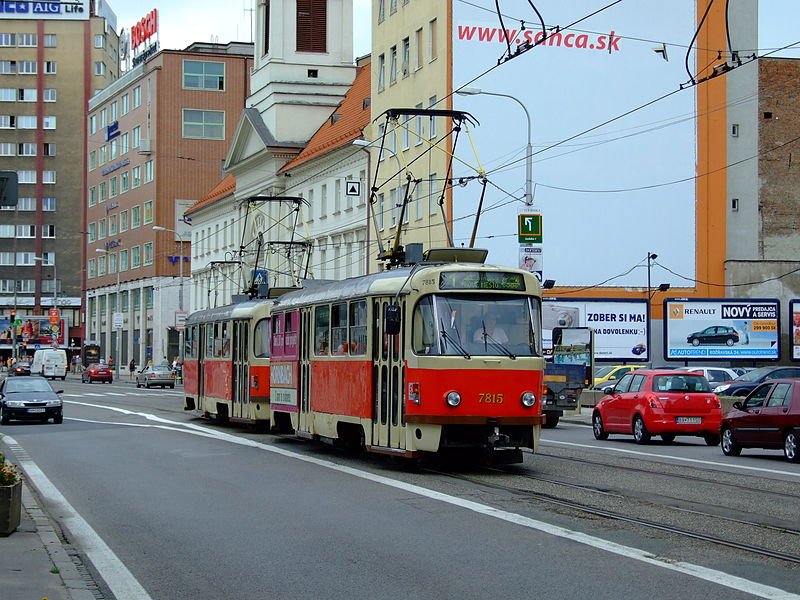 The tram in Bratislava
The tram in BratislavaSource: https://commons.wikimedia.org/wiki/File:Bratislava,_Star%C3%A9_Mesto,_%C5%A0pit%C3%A1lsk%C3%A1,_Tramvaj_T3_SUCS_modernizovan%C3%A1.jpg
Author: Aktron

Exploring Bratislava
The Old Town of Bratislava is reasonably compact. The best way to see the sights is to go on foot. For greater distances, there are trams and buses. There are passes for unlimited rides for 1 day (€3.50), 2 days (€6.50), 3 days (€8.00) and more. Tickets are available at vending machines bus bus and tram stops. Tickets must be bought before you board the trams or buses, as the drivers do not sell tickets. Upon boarding, validate your ticket at the validation machine.Places of Interest in Bratislava, Slovakia
- Academia Istropolitana
- Bratislava Castle
- Bratislava City Gallery
- Bratislava City Museum
- Chatam Sofer Mausoleum and the Jewish Cemetery
- Church of St. Elisabeth
- Church of the Annunciation
- Church of the Holy Savior
- Grassalkovich Palace
- Indoor Market
- Laurin's Gate
- Michael's Gate
- Milan Dobes Museum
- Mirbach Palace
- New Bridge
- Old Town Hall
- Palffy Palace
- Pharmacological Museum
- Primate's Palace
- Roland Fountain
- Slavín
- Slovak National Gallery
- Slovak National Museum
- Slovak National Theater
- Slovak Radio
- St Clare's Church
- St Martin's Cathedral
 Latest updates on Penang Travel Tips
Latest updates on Penang Travel Tips

Copyright © 2003-2025 Timothy Tye. All Rights Reserved.

 Go Back
Go Back